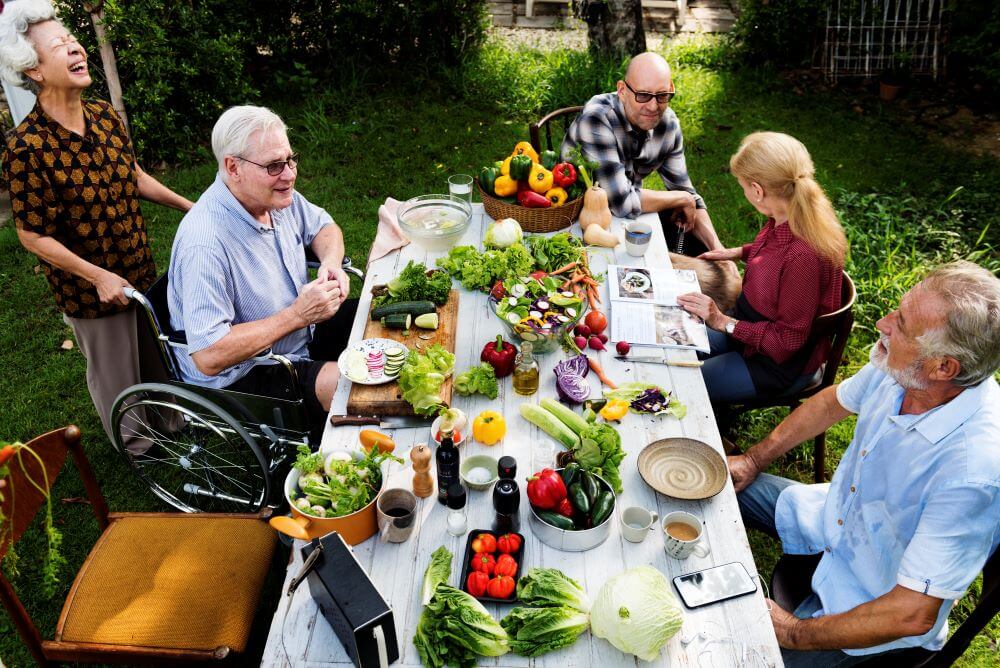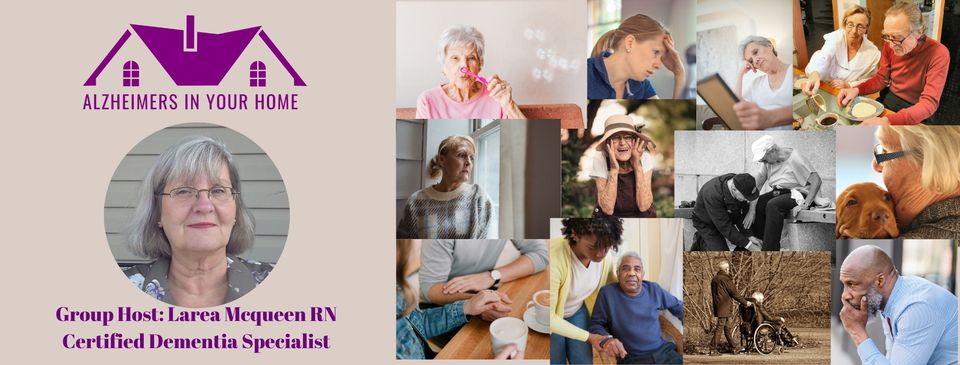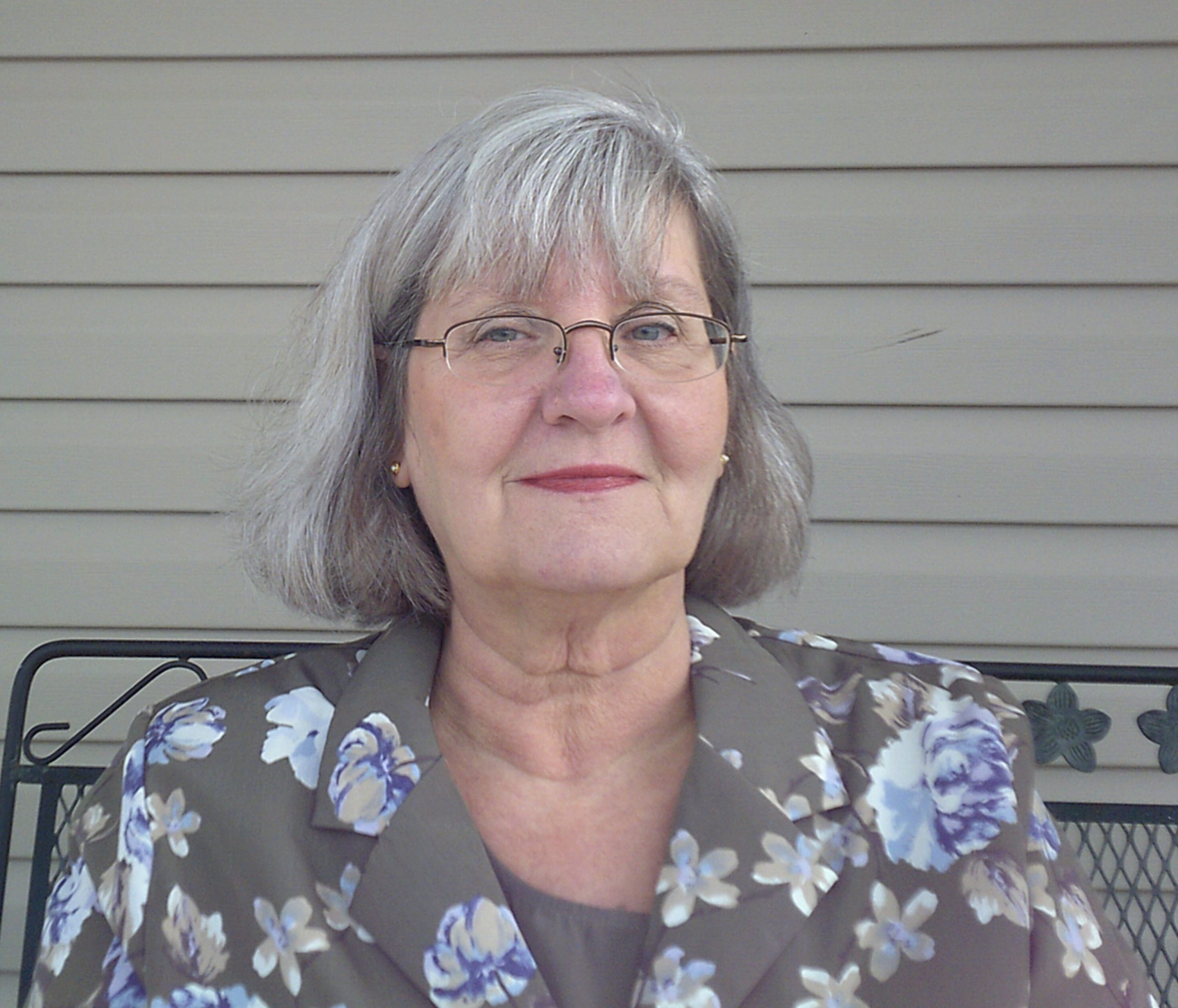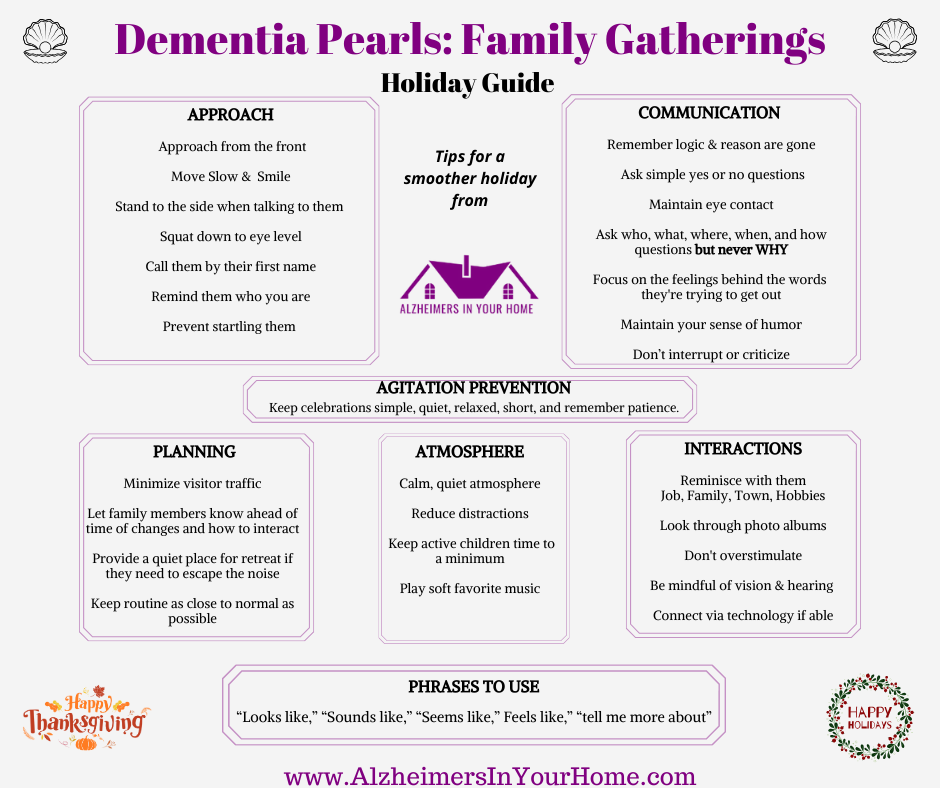Understanding Dementia and the Holiday Season
The holiday season is a time of joy, love, and togetherness, but for those living with Dementia and their caregivers, it can be a challenging and emotional period.
The holidays can be especially tough for individuals with Dementia. Their memory and cognitive abilities are compromised, which can make the hustle and bustle of the holiday season overwhelming.
The holidays are when families come together, especially those who don’t live nearby. Thanksgiving and Christmas dinners usually overflow the tables with food and people throughout the house. You may have ten conversations going simultaneously and a handful of children running from room to room.
Most people would think of this as a great time full of fun and laughter. But for someone with Dementia, this can be a true nightmare. They quickly go into sensory overload! Their brain can’t handle all of the different stimuli flying at them.
My family was one of those that everyone gathered at my mom’s house. There were 3 of us girls, and with our families, there were around 30 people in her house on the holidays. Of that 30, 12-15 were children.
My mother’s sister, Faye, and her brother, Fred, both developed Dementia. The noise in the house would agitate Fred, and we quickly learned to keep the children outside as much as possible and the talking in the kitchen.

Embracing Changes and Setting Realistic Expectations
One of the keys to a successful holiday season with a loved one with Dementia is to acknowledge the changes and set realistic expectations.
It’s crucial to adapt to your loved one’s abilities. Decorate your home in a way that is comfortable for them and not overly stimulating.
Be careful when adding holiday lights; they may be interpreted as something completely different. The flashing lights may resemble police lights and create distress in your loved one.
Decorations that make noise can also confuse someone with Dementia if they cannot tell where the noise is coming from or what it is. I have seen people with Dementia carry on conversations with electronic stuffed animals.

Creating a Familiar and Comforting Environment
To make the holidays more enjoyable for your loved one, create a familiar and comforting environment. If the gathering is in your home, use their favorite decorations, play their cherished holiday songs, and engage in activities they once enjoyed. These familiar elements can bring a sense of warmth and joy.
Stick as close to your daily routine as possible. Talk to the coordinator of the gathering ahead of time. Make sure they understand Dementia and your loved ones’ limitations.
Remember to think about what is best for your loved one. Ask other family members to take turns sitting and visiting with them, and only stay for a short time if need be.

Inclusive Celebrations and Meaningful Activities
Involving your loved one in holiday preparations can make them feel valued and engaged. Simple tasks like wrapping presents, making decorations, or baking can be a source of joy.
Here is a list of 9 Holiday activities for those with Dementia.
- Holiday Baking: Baking holiday treats is a great way to spend time with a loved one with dementia.
- Holiday Music: Listening to holiday music can be very calming and soothing for someone with dementia.
- Holiday Decorating: Decorating the house with holiday decorations can be a fun and festive activity.
- Holiday Cards: Creating holiday greeting cards is a great way to spend time together and can be a fun and creative activity
- Holiday Movies: Watching a favorite holiday movie can be a great way to spend time together and can bring back happy memories
- Holiday Singing: Singing seasonal songs can be a fun and enjoyable activity. You can play a piano or guitar and sing holiday songs together .
- Holiday Crafts: Doing arts and crafts can be a beneficial therapeutic intervention technique for dementia patients. You can try making pomanders with oranges and cloves or carving a pumpkin
- Holiday Puzzles: Doing puzzles can be a great way to keep the mind active and engaged. You can try working on a jigsaw puzzle or crossword puzzle together
- Holiday Gift Wrapping: Wrapping holiday gifts can be a fun and creative activity. You can try making personalized gift tags or wrapping paper
Try to spread out the activities and not do them all in one day. This will help them enjoy the holiday activities and keep them from overwhelming them.
Remember to include holiday songs. Singing can work magic for some with Dementia. It helps them tap into old memories.
Don’t forget to take plenty of pictures and break out the old ones if possible.
Find Peace Amidst the Storm!
Dementia caregiving can be overwhelming, but it doesn’t have to be. Say goodbye to the confusion and chaos.
Our Caregivers Notebook “Alzlog” can help you find the confidence, organization, and control you’ve been searching for.
Take the first step towards transformation now.


Have aBeing Patient and Flexible During The Holiday with Dementia
Patience is vital during the holiday season. It’s essential to be flexible and willing to adjust plans as needed.
If the holiday gathering is not at your home, try to ensure a quiet, safe place to retreat if they become agitated from the overstimulation.
Plan for the What ifs…
What if they are incontinent when you are there? Take a go bag. If your loved one has dementia, I always recommend to keep an emergency bag in the care or with you when you are out somewhere. An incontinence episode is very embarrassing for someone in early/middle dementia, but it is 10 times more embarrassing if you are prepared and don’t have supplies.
What if they get agitated and cause a scene? Have a plan! If your loved one becomes agitated or overwhelmed, consider taking a break, finding a quiet space, or going for a short walk together. Remove them from the sensory overload (especially noise & too many people).
What if they don’t recognize family & friends? Prepare them ahead of time! Call, text, email or whatever way you communicate with them and let them know ahead of time what to expect. You might even want to send a picture if your loved one has changed much since they saw them last.
I recommend sharing the Dementia Pearls: Family Gatherings Holiday guide with them before the event.
Click on the picture below to download and print the Dementia Holiday Guide.

Reaching Out for Support
Caring for a loved one with dementia can be emotionally taxing. Remember to take care of yourself, too. You are the lifeline for your loved one, and you need to stay strong.
If you haven’t found a Dementia support group, this is an excellent time to start. The holidays can be overwhelming to dementia caregivers. Both physically and emotionally.
Talking to those in similar situations can help! It helps ease the many feelings that caregivers experience when they realize so many other people live a life that mirrors theirs.
If you still need to join our private Facebook caregiver group or my newsletter, here are the links.

📣 Attention Dementia caregivers🔊
𝑼𝒏𝒅𝒆𝒓𝒔𝒕𝒂𝒏𝒅𝒊𝒏𝒈 𝒕𝒉𝒆 𝒑𝒓𝒐𝒈𝒓𝒆𝒔𝒔𝒊𝒐𝒏 𝒐𝒇 D𝒆𝒎𝒆𝒏𝒕𝒊𝒂 𝒊𝒔 𝒌𝒆𝒚!
Our guide on when to call the doctor is a must-read.

Conclusion: Dementia During the Holidays
Dementia during the holidays can be a challenging journey, but with understanding, patience, and a supportive network, it can also be a time of love and connection.
The most important things to remember, is to watch out for sensory overload to prevent agitation and have realistic expectations of what your loved one can do.
Remember the reason for the season. Enjoy the time with your family and friends. Celebrate, enjoy life, and make new memories. Let’s make the holiday season brighter for our loved ones living with Dementia.💜
The Dementia Caregiver Blog Library
Activities, Advanced Directives, Agitation, Apathy, Approach, Apps for Caregivers, Basic Caregiving, Bathing, Bathroom Safety, Caregiver Burnout, Caregiver Compassion, Caregiver Emotions, Caregiver Help, Caregiver Loneliness, Caregiver Support, Cold & Flu Season, Communication Challenges, Dehydration, Dementia Complications, Dementia Doctors, Dementia Safety Home, Dementia Types, Dementia-Friendly, Dressing Issues, Driving Safety, Eating Problems, Fall Prevention, Family Help, Finances, Guns & Dementia, Harm Prevention, Healthcare, Help at Home, Hiding Dementia, Holidays, Hospice, Hospital Stay, In-Between Stage, Kitchen Safety, Laughter, Legal Healthcare, Marijuana use, Medication Tips, Music, Nutrition, Pain, Patience, Poop Problems, Relationships, Reminiscing, Routine, Safety, Sense of Purpose, Shadowing, Sleep Issues, Stages of Dementia, Sundowning, Television, Time Travel, Traveling, Toileting, Wandering
Exploring Caregiving Tools & Resources? Don't Forget to Check Out My Resource Page! 🌟

Hi, I’m Larea, a Certified Dementia Specialist and Registered Nurse with 30 years of hands-on experience helping dementia patients in various settings, from hospitals to nursing homes and hospice. Drawing on personal experiences with my family members and patients over the years, I’m here to help guide you on your caregiving journey.


